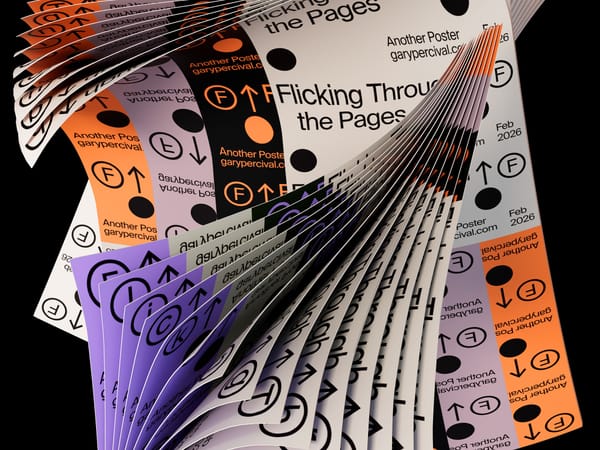Pushing Past 'I Don't Feel Like It': The Secret to Unlocking Your True Potential
Motivation is fickle and fleeting, discipline is reliable and lasting.


We've all experienced those days when we simply don't feel like doing something.
Maybe you don't feel like working out, tackling a work project, cleaning your home, or any number of tasks. You're just not in the mood. In those moments, it can be tempting to succumb to the "I don't feel like it" mentality and avoid the task altogether.
However, consistently giving in to those feelings of apathy, laziness, or lack of motivation can severely limit your success. Pushing through when you don't feel like it is often the key to accomplishing your goals and unlocking your true potential.
Overcoming Excuses and Procrastination
We've all been there, drowning in excuses to avoid tackling tasks that don't excite us. "I'm too busy," "I'm exhausted," or "I'm just not in the creative"zone"—these justifications offer temporary relief but quickly spiral into chronic procrastination that derails our goals.
"Procrastination is the nemesis of productivity, especially for creatives."
When we continuously postpone working on projects, we lose precious time and momentum. As deadlines draw near, mounting anxiety quickly replaces the fleeting comfort of avoidance.
But there's hope! Here are four strategies to help conquer procrastination and reclaim your creative mojo:
- Prioritise ruthlessly: Streamline your task list to focus on the most critical, goal-oriented tasks. Eliminate or delegate non-essential items to make your workload feel more manageable.
- Embrace work sprints: Set a timer for focused, 25-minute work sessions followed by 5-minute breaks. Tackling tasks in short bursts makes them less daunting and boosts productivity.
- Establish accountability: Partner with a colleague, friend, or group and commit to regular check-ins on progress. The prospect of reporting procrastination to others can be a strong motivator.
- Celebrate small victories: Reward yourself for completing tasks and reaching milestones. Positive reinforcement strengthens your resolve to overcome procrastination.
Remember, every triumph over excuses is a testament to your creative resilience. By confronting procrastination head-on, you'll unlock your full potential and achieve your most ambitious goals.
The Importance of Discipline
"Motivation is fickle and fleeting, discipline is reliable and lasting."
Accomplished professionals know they cannot wait for motivation to strike before tackling important tasks.
Mustering the discipline to follow through when we would rather do anything else takes practice. Start by laying out your priorities and dedicating time on your calendar to chip away at them daily.
Building simple habits and rituals creates a structure for your day and strengthens your self-discipline muscle. For instance, make it a habit to tackle your least favourite task first thing in the morning when your willpower is at its highest. Or create a ritual of reviewing your to-do list the night before.
Discipline comes from repeating positive habits, whereas procrastination often stems from unhealthy habits we have allowed to develop.
It also takes discipline to resist the distractions that constantly threaten to derail us from our priorities. From social media to email notifications, creatives have to be vigilant about blocking out chunks of time for focused work.
Disable distracting apps, silence notifications, and create a distraction-free environment. Saying no to distractions as they arise builds discipline over time.
Reframing Your Mindset
Our mindset and inner dialogue have a profound effect on our desire and ability to push through tasks when we don't feel like it.
Reframing your mindset involves shifting from a fixed mindset focused on immediate gratification to a growth mindset focused on long-term rewards.
When you catch yourself thinking things like "I'm just not creative today" or "I don't have the energy for this," halt the thought and reframe it. Focus on all the progress you've made, the times you have persevered, and the immense value of what you're working on.
Visualise the end result and how accomplishing this task moves you closer to your larger vision. Seek out the inspirational stories of others who have overcome immense obstacles. Surrounding your mind with empowering narratives crowds out destructive self-talk.
Building a more positive mindset takes practice, but the payoff is immense. You gain confidence in your ability to motivate yourself and push past obstacles. Every time you succeed at something you thought you couldn't do, it expands your belief in yourself. Don't allow negative or limiting thoughts to restrain you.
The Power of Momentum
Once you push past that initial resistance and reluctance to begin a task, you build momentum that makes it easier to maintain focus and consistency. Isaac Newton's First Law of Motion states that an object in motion stays in motion. Once you overcome inertia and start moving, it is easier to keep going.
When you've been procrastinating on something for a while, just getting started is the hardest part. But if you force yourself to take that first step—outlining the logo design, setting up your workspace, opening the document—momentum kicks in. Progress builds more progress.
One of the best feelings is crossing a completed task off your to-do list; that propels you on to the next.
Learn to harness the power of momentum when you don't feel motivated. Remind yourself that accomplishing one task, no matter how small, will build the energy to accomplish the next task.
"The pride and confidence you gain from following through on commitments, even when you don't feel like it, compounds over time."
Before you know it, you have unlocked abilities and drives that may have previously remained dormant.
The Compounding Effect of Small Wins
It can be demoralising to focus on the enormous, audacious goals we have set for ourselves. But every massive achievement is just a series of small wins stacked on top of each other. Completing a page of designs, submitting one proposal, and cleaning for 10 minutes—they may feel inconsequential in the moment. But small wins compound.
The cumulative impact of repeating tiny successes, day after day, is extraordinary. The boosts of dopamine released when you cross off tasks are motivating.
You look back weeks later to see how the small steps added up to substantial progress. Celebrate and find motivation in these micro-wins throughout your journey.
Conclusion
We all occasionally struggle with motivation and feel tempted to take the easy way out when tasks seem unappealing. However, it's what you do on your worst days—not your best days—that will ultimately determine your goals and dreams.
Pushing past the inevitable "I don't feel like it" by building habits, reframing your mindset, and harnessing momentum will unlock potential you do not yet realise you possess.
What strategies have worked for you to stay disciplined and focused during those challenging times? Please share any insights or tips in the comments below.
By supporting each other, we can all become better at consistently showing up, even in the face of resistance. That is the secret to maximising our talents and achieving extraordinary outcomes. Consistency compounds results, so never let a temporary lack of motivation hinder your long-term success.



